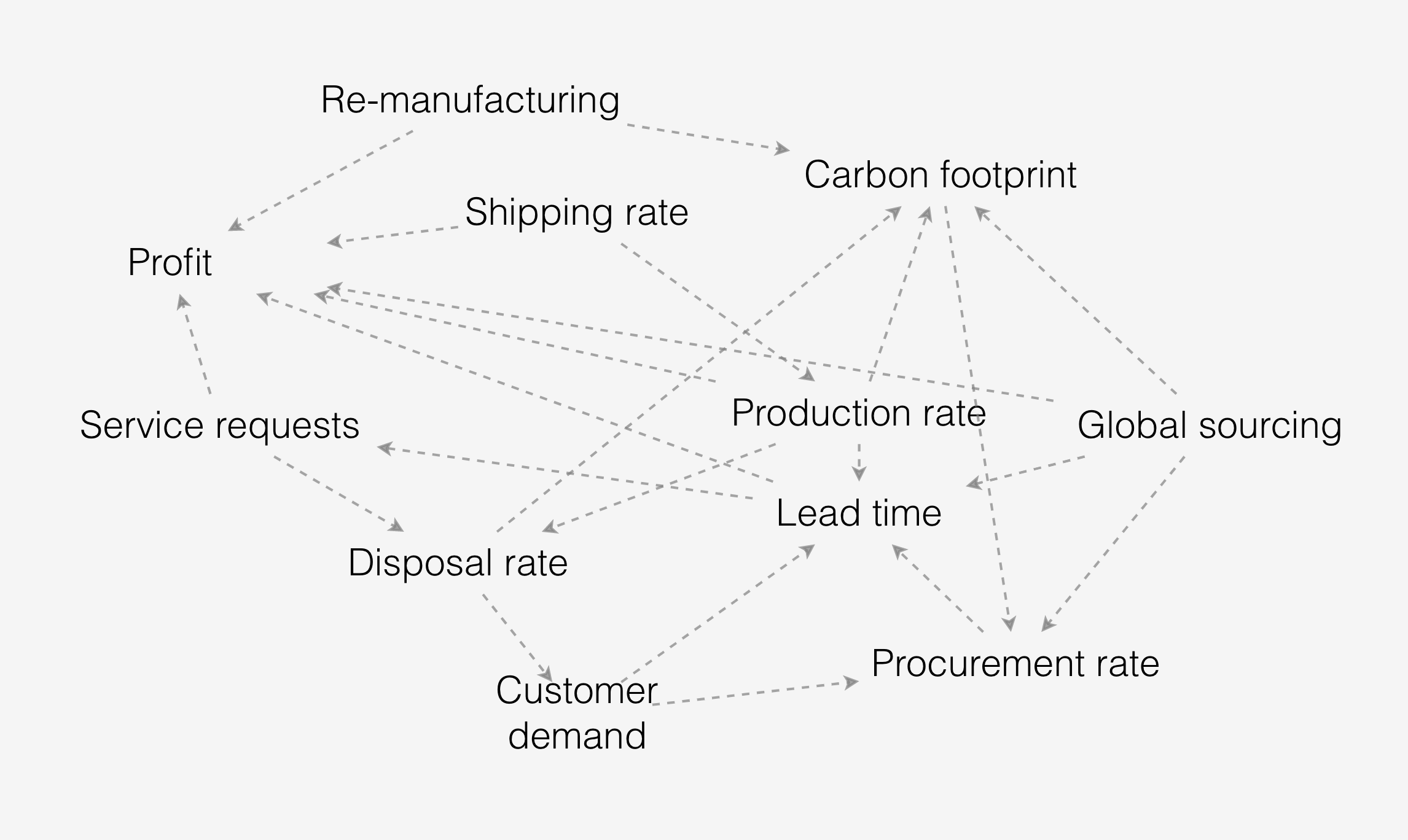Supply chains are complex systems. Not complex as in complicated, such as an engine of a car, but complex as in a much more fundamental, impactful and insidious way. Supply chains are complex in that they are not actually literal ‘supply chains’, but instead are more akin to ‘supply ecosystems’ with invisible and unfathomable interdependencies between their component parts stretched out across disparate economies, geographies, political and value systems.
This system of interdependency is best represented using a systems thinking diagram such as the one below:

Unlike the complicated engine, which for the most part works as an engine, converting fuel into mechanical movement in a predetermined and predictable way, the complex supply chain is nothing short of unpredictable with unforeseen and unintended consequences throughout; a shortage in one part of the system has hugely disproportionate and unforeseen consequences in another, seemingly unrelated part of the system.
Nobody would be surprised to find that the overwhelming approach to supply chain security is through the development and adoption of ‘robust’ and ‘resilient’ processes and systems. In fact, a quick scan of recent literature sees these words used throughout as a common mantra. Unfortunately, robust and resilient processes which may intuitively appear to be the correct approach, may in fact be worsening the supply chain security issue.
A change in approach is required which recognises that the supply chain is a complex system which requires complex systems solutions. Rather than developing linear processes aimed at robustness which lead to fragility in the face of unforeseen events, an antifragile systems thinking approach could enable supply chains to not only automatically self-correct, but even grow stronger as stresses, strains and shocks are applied to it.
Developing an antifragile supply chain approach is by no means a small endeavour, especially when essential cross domain challenges such as cyber security and ESG considerations are also being considered. However, the benefits to those who can make the paradigm shift from linear processes to complex systems thinking will benefit enormously, not just for themselves and their own organisations, but for global supply chains and all that rely upon them.
Gaining visibility into the levels of risk associated with each supplier across a complicated ecosystem is a significant business challenge. It is, however, a highly recommended step in developing a supply chain that withstands the challenges it will almost certainly face.
The concepts above are explored in great depth in the book Antifragile: Things that Gain from Disorder by Nassim Nicholas Taleb.
Cyber crime is a major cause of disruption within global supply chains. To discover ways of increasing your supply chain’s resilience to cyber criminals, create a free-for-life Horizon account or speak to a member of the Darkbeam team using the form below.
